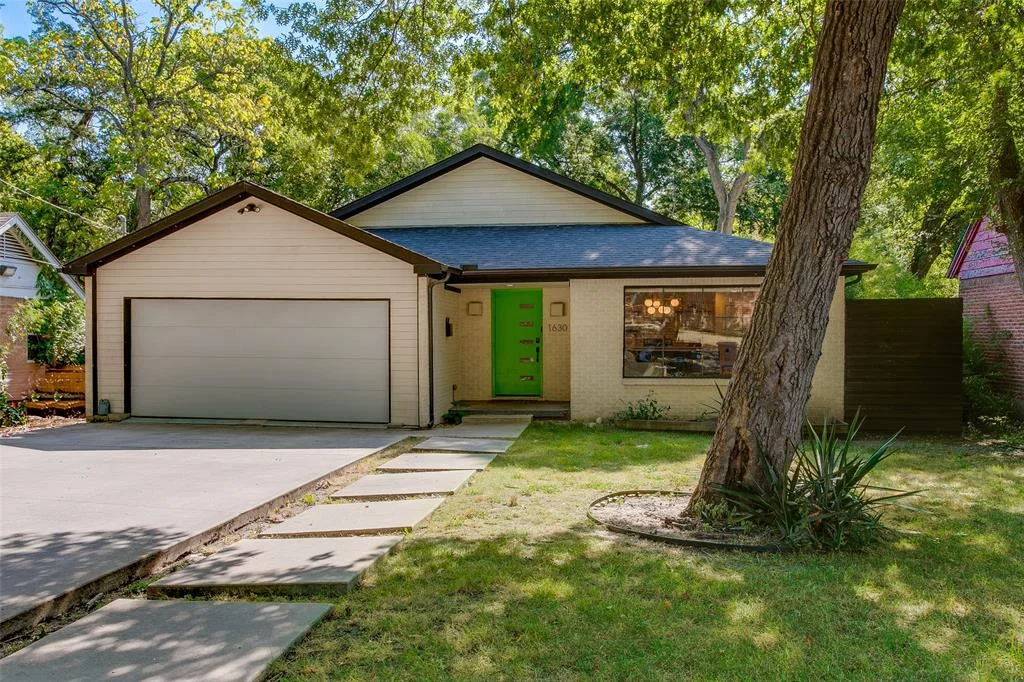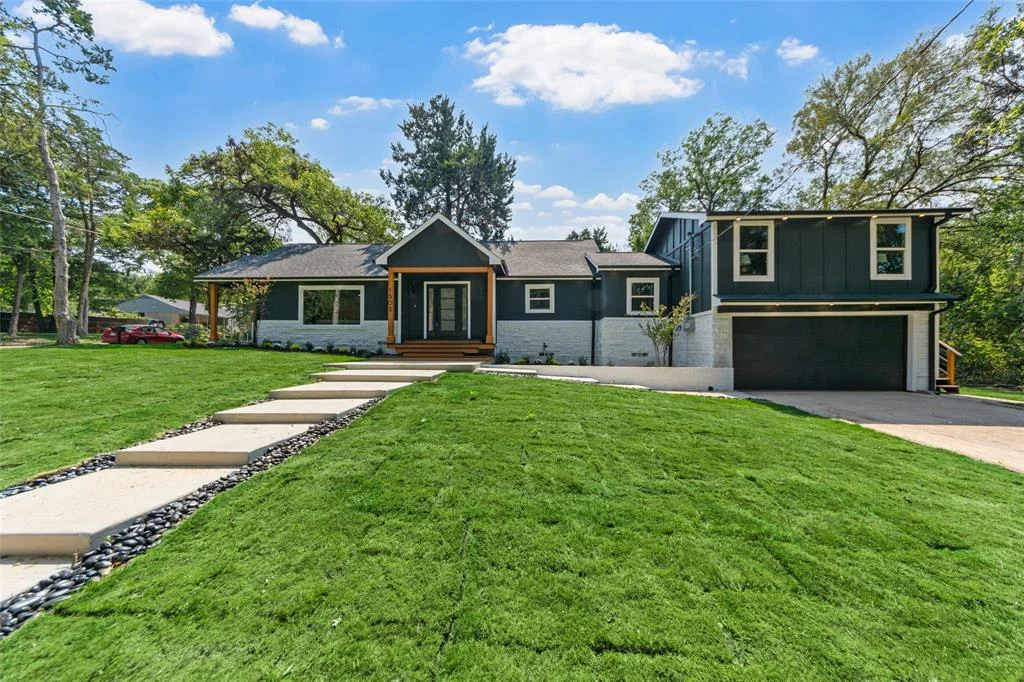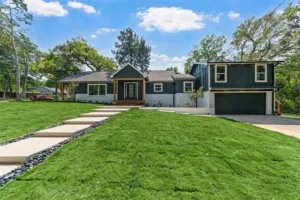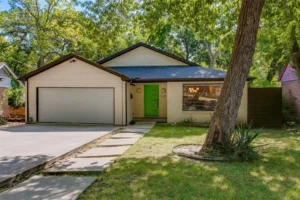Introduction to Beckley Club Estates Historic Homes
Welcome to the Beckley Historic Home Guide, your gateway to exploring the Spanish-style historic homes of Beckley Club Estates in Dallas, Texas. Established in the 1920s, this neighborhood is a treasure trove of historical significance and architectural diversity, making it a prime destination for those seeking to immerse themselves in the charm of local history. Among its gems is the property at 1506 Seevers Ave. in Oak Cliff, Dallas, a perfect example of how these homes blend historical elegance with modern conveniences. With features such as hardwood floors, stone fireplaces, and granite countertops, it encapsulates the unique allure of Beckley Club Estates, offering a glimpse into why this area remains so sought-after.
The area’s focus on preserving historical homes boosts its aesthetic and maintains property values. It also preserves cultural heritage. Residents and buyers appreciate the elegance and stories of these homes. They take pride in their historical significance. Adhering to preservation guidelines ensures Beckley Club Estates remains a perfect blend of history and modernity.
Beckley Historic Home Guide: Key Considerations Before Buying
Before purchasing a historic home in Beckley Club Estates, consider several factors that impact homeownership. Assess the property’s proximity to schools, public transport, and community facilities. These amenities should fit your lifestyle and daily needs, enhancing life in this historic neighborhood.
Preserving the property’s historical integrity is crucial. Buyers should value the heritage and character of historic homes. This means maintaining original features and architectural elements. These contribute to the neighborhood’s historical significance. Adherence to preservation guidelines protects the property’s authenticity. It also adds to Beckley Club Estates’ charm.
Engaging with local community initiatives not only fosters a sense of belonging but also actively contributes to the preservation of Beckley Club Estates’ rich history and cultural heritage for future generations. Whether through restoration projects or participation in neighborhood events, residents, including home sellers agents in Dallas, TX, play a vital role in sustaining the legacy of this cherished community.
Adhering to Historical Preservation Guidelines: A Beckley Historic Home Guide
Buying a historic home in Beckley Club Estates requires adherence to preservation guidelines. These rules protect the neighborhood’s heritage. Guidelines often restrict major exterior changes, to keep original features like facades, windows, and doors intact. For example, updating a roof may need approval to match the area’s historical look.
Preserving a home’s historical traits benefits both the property and the neighborhood. For instance, original wooden window frames or intricate moldings not only increase a home’s value but also beautify Beckley Club Estates. Homeowners should work with local historical societies for guidance. This ensures renovations respect the area’s historical integrity.
Home for Sale in Beckley Club Estates
No Results Found.
Identifying Common Issues: Insights from the Beckley Historic Home Guide
When considering purchasing a historic home in Beckley Club Estates, it is crucial to be aware of common issues that may be encountered. One significant concern is the potential for structural problems stemming from the aging of the property. Due to the historical nature of these homes, outdated infrastructure may pose challenges, requiring careful attention during inspections and renovations. For instance, issues with the foundation, roof, or walls could be more prevalent in older homes and may need specialized restoration work to ensure the structural integrity of the property over time.
Moreover, the maintenance of historical building materials can be a demanding task for homeowners in Beckley Club Estates. Preserving original fixtures and architectural elements, such as intricate moldings or vintage hardware, can be essential for maintaining the historical authenticity of the property. However, this preservation effort often comes with restoration challenges, as sourcing period-appropriate materials and skilled craftsmen familiar with historical construction techniques might be necessary. For example, restoring a century-old hardwood floor or refurbishing a unique fireplace may require expertise in traditional craftsmanship to retain the home’s historical charm.
In light of these considerations, enlisting the services of professional inspection teams specializing in historic properties becomes paramount. These experts can provide valuable insights into hidden issues within the home and offer a more accurate estimation of renovation costs. By conducting a thorough inspection, potential buyers can gain a comprehensive understanding of the property’s condition and make informed decisions regarding the purchase and restoration of a historic home in Beckley Club Estates.
Navigating Renovation Costs and Challenges: A Beckley Historic Home Guide
When estimating renovation costs for a historic home in Beckley Club Estates, it’s crucial to consider the expenses related to preserving the property’s historical features. For instance, maintaining original fixtures, restoring intricate woodwork, or repairing vintage windows can significantly impact the overall budget. Additionally, sourcing period-appropriate materials is essential to ensure the historical integrity of the home is preserved. Costs can vary depending on the availability and authenticity of these materials, making it vital for homeowners to research suppliers and allocate funds accordingly.
Understanding preservation guidelines is crucial for maintaining Beckley Club Estates’ authenticity and heritage. These rules dictate renovation methods and materials, including restrictions on exterior changes. Approval processes ensure compliance, essential for residents and listing agents in Dallas, TX, to preserve the neighborhood’s history.
Advantages of Owning a Historic Home in Beckley Club Estates
Owning a historic home in Beckley Club Estates offers unique benefits. Homeowners take pride in preserving local history. They maintain original features like woodwork and stained glass, showcasing past craftsmanship. This pride enhances the community’s historical value.
Additionally, historic homes may qualify for tax incentives. Approved restorations can lead to tax credits, reducing renovation costs. These incentives encourage the preservation of the neighborhood’s heritage. Homeowners thus support the area’s legacy and increase their property’s value.








